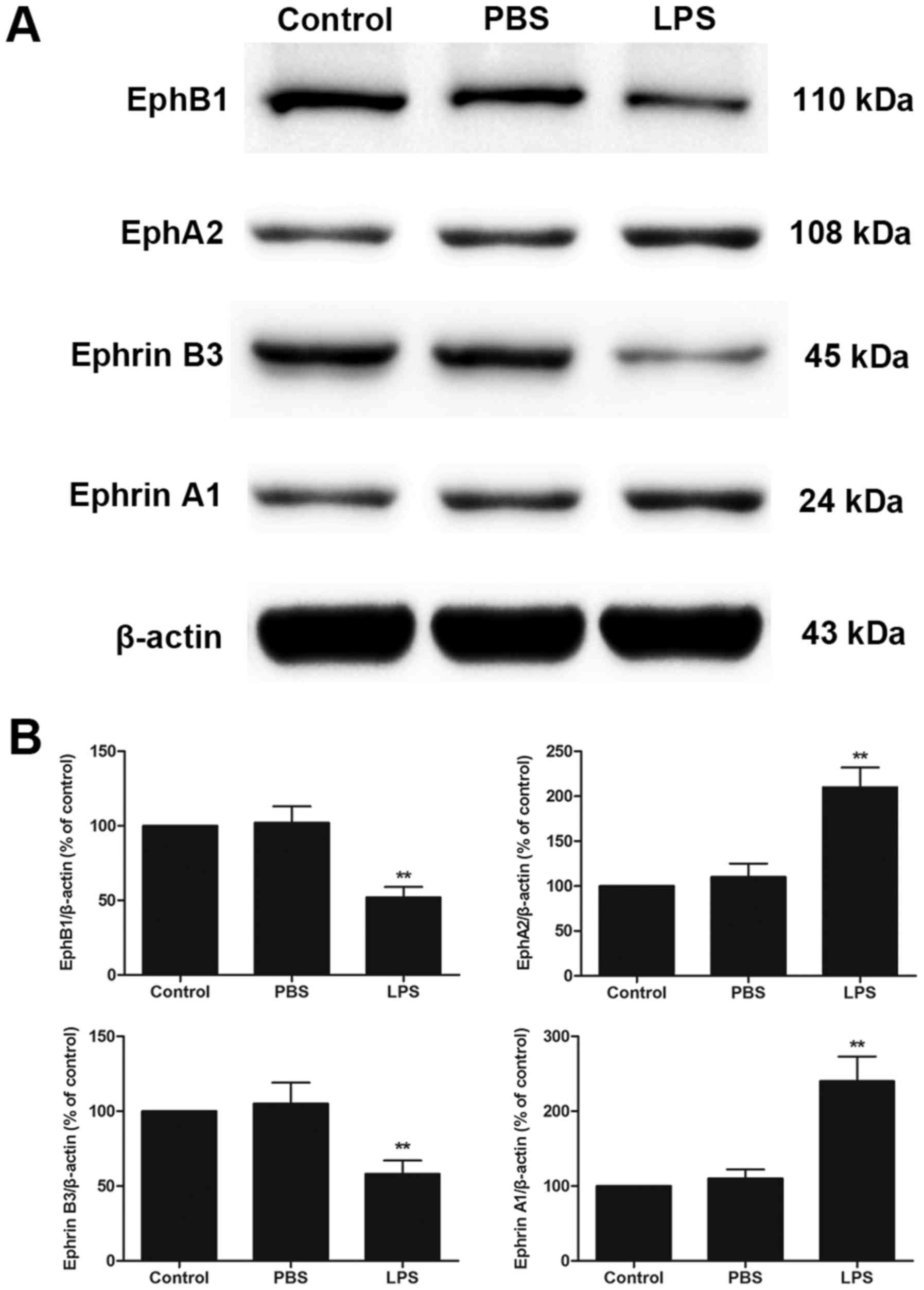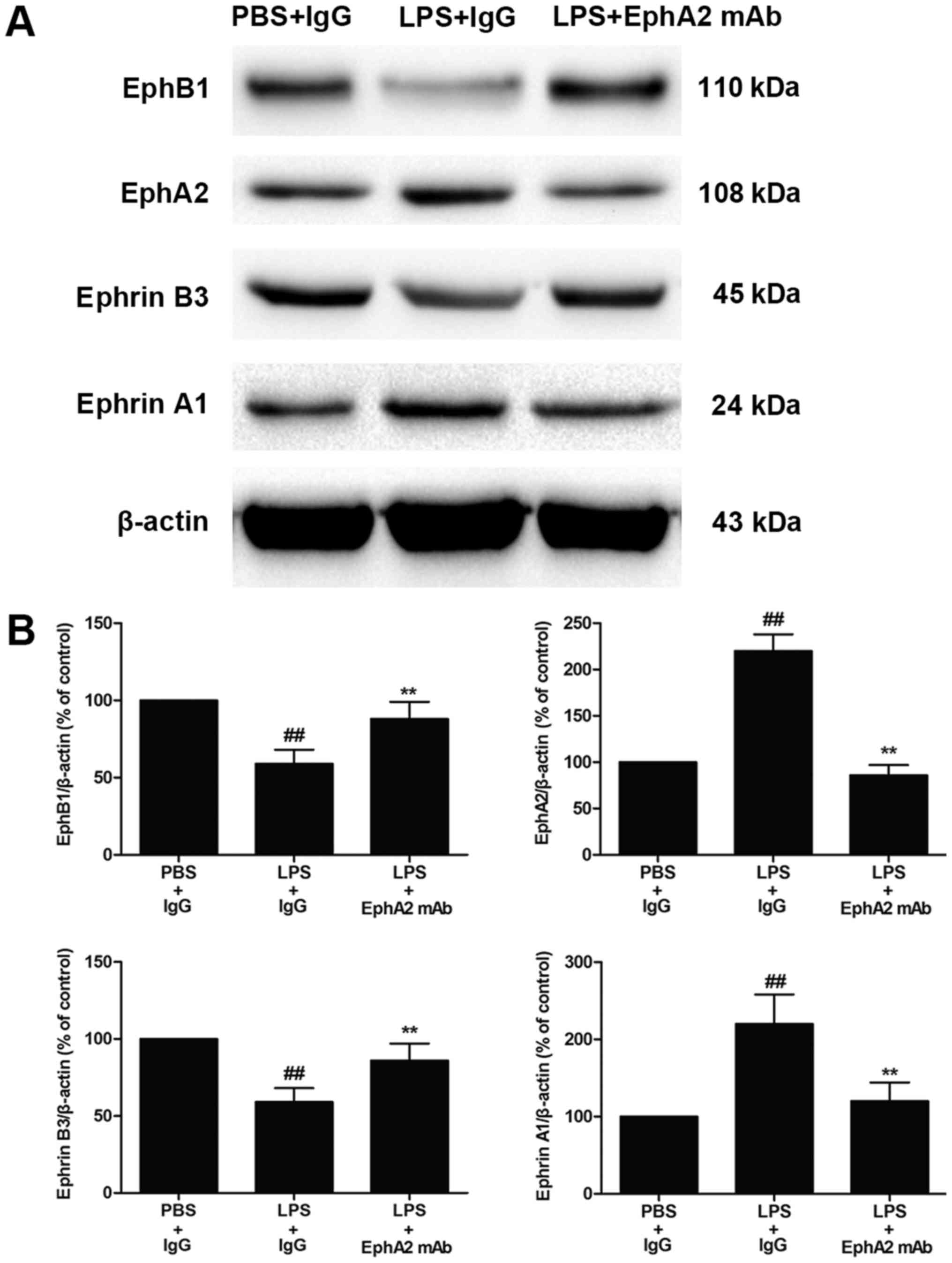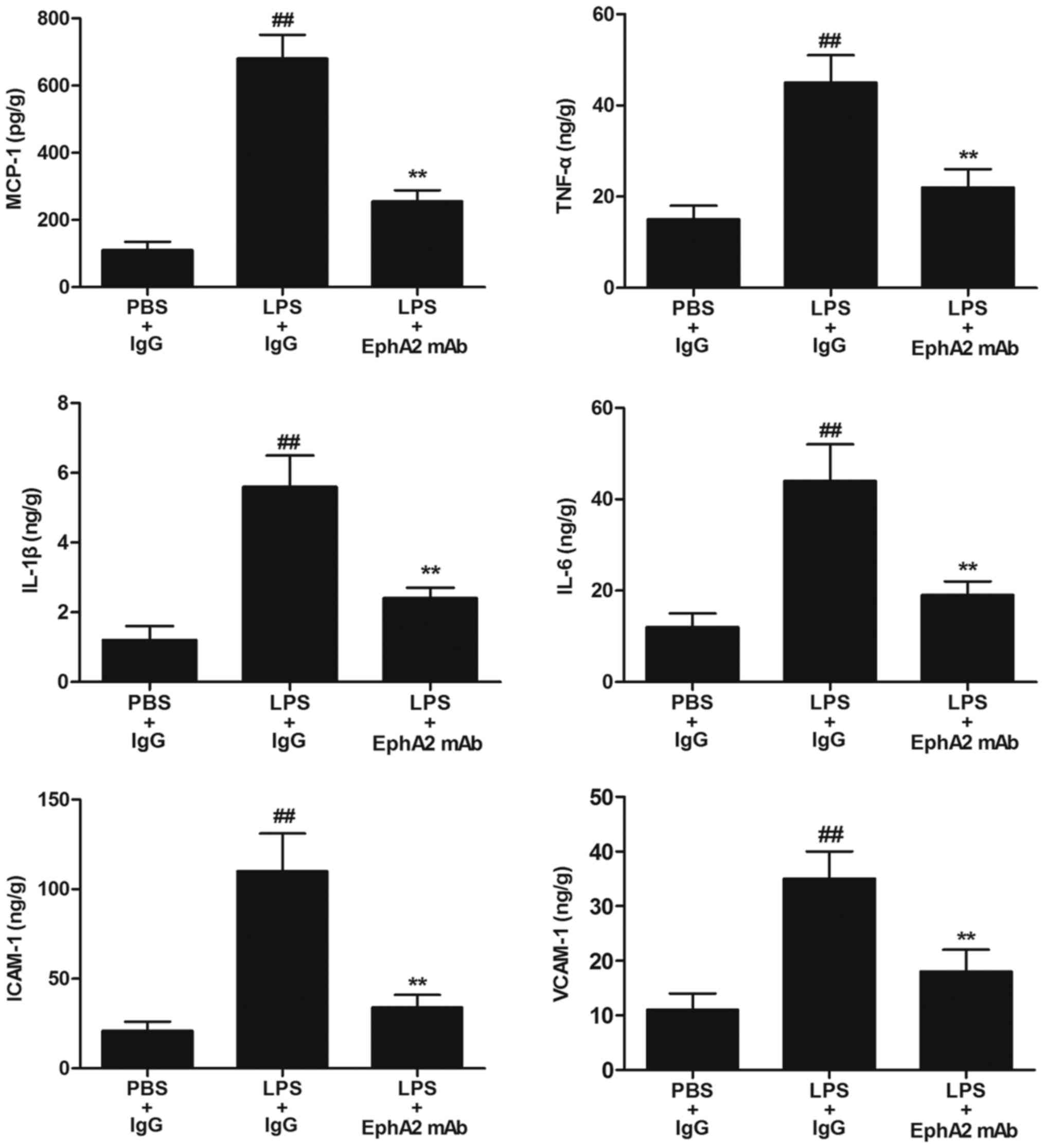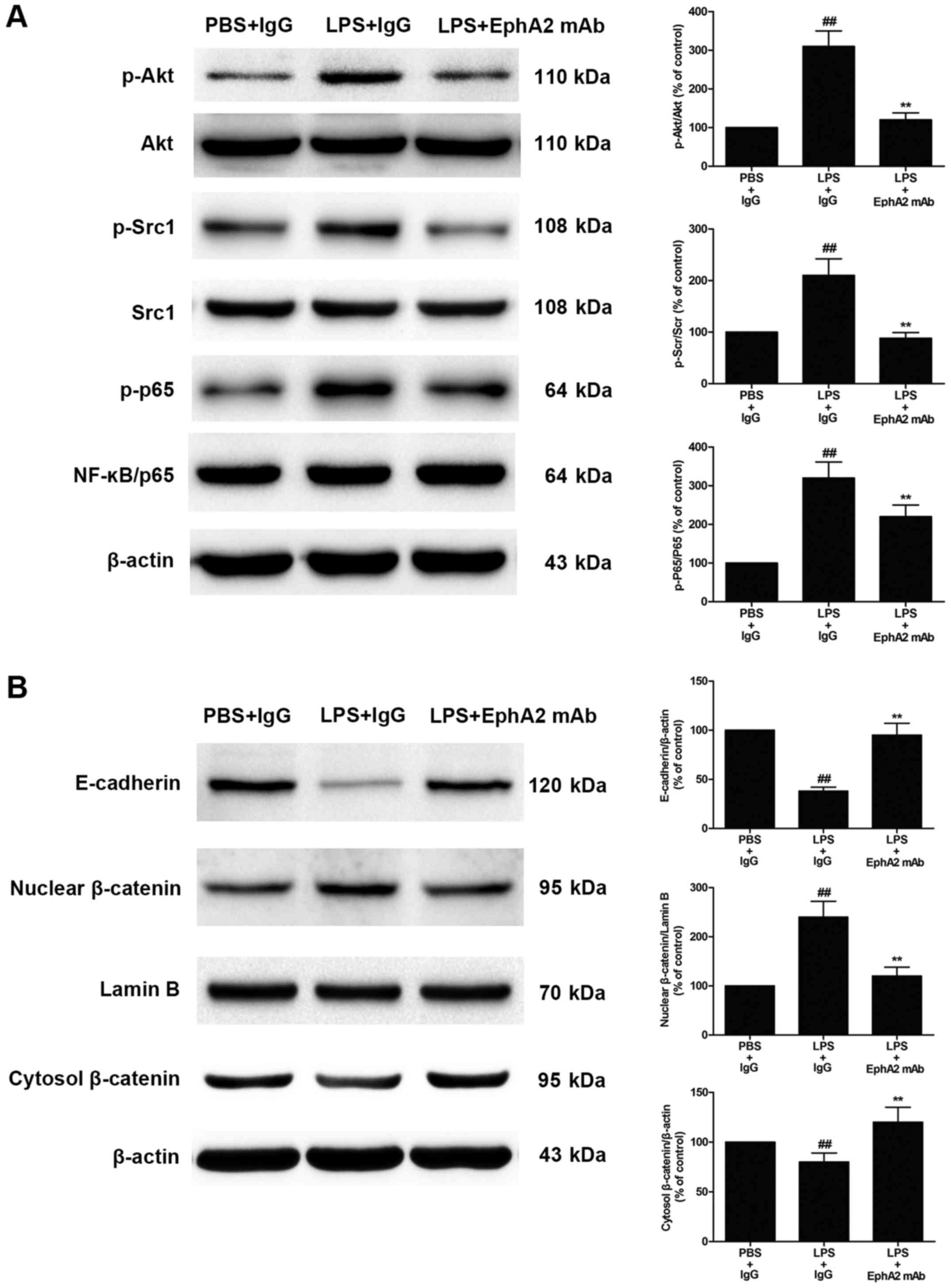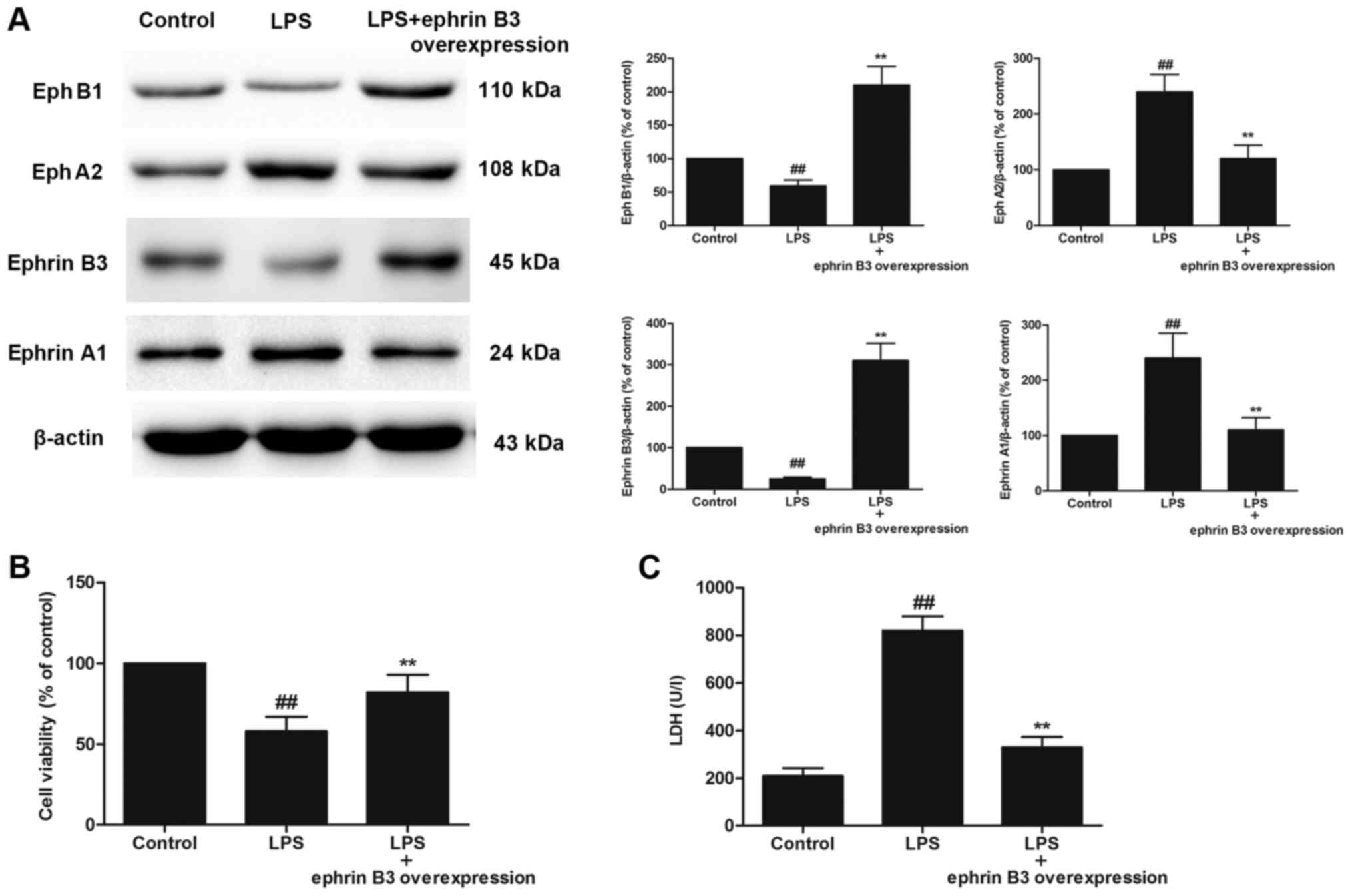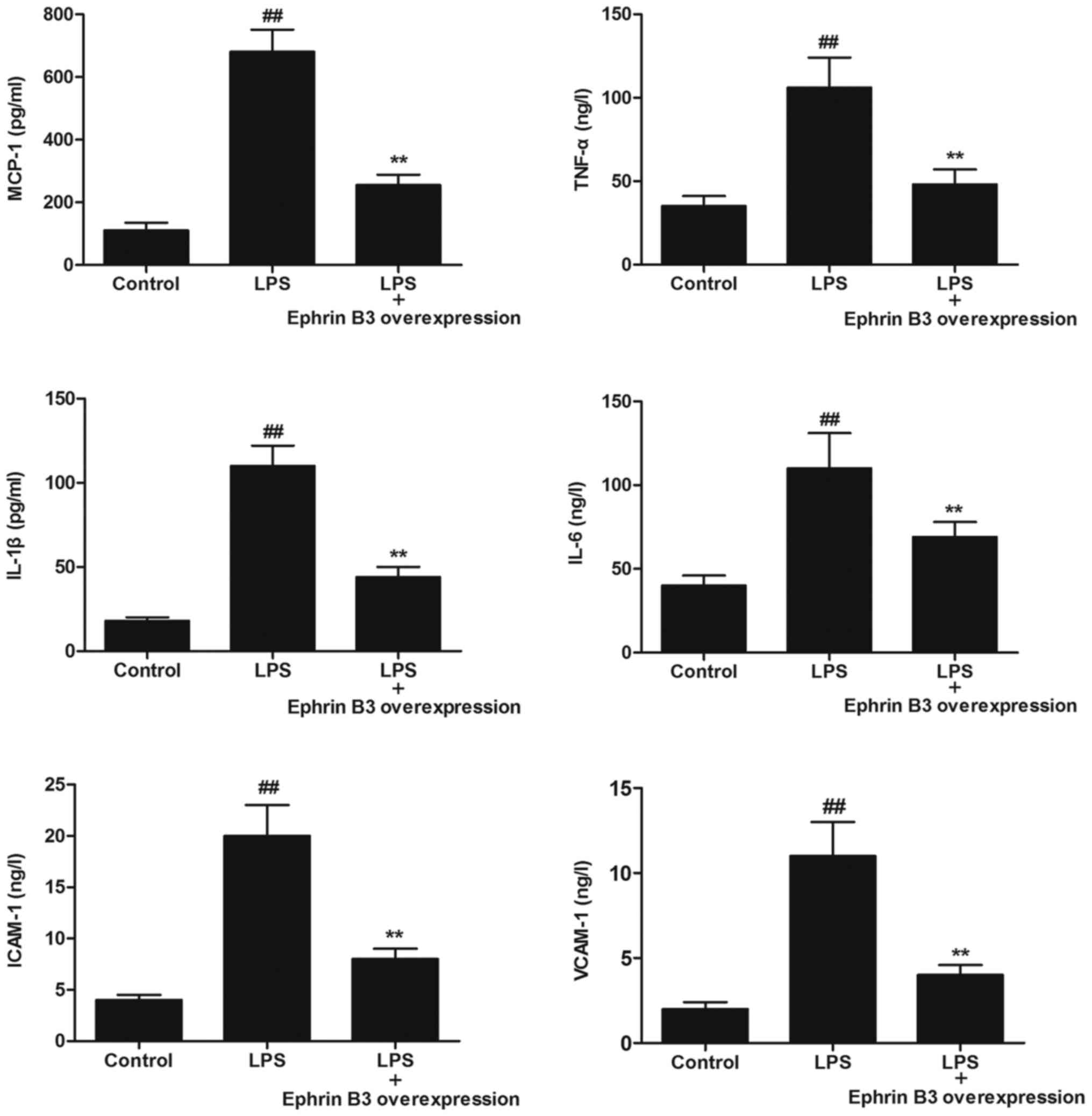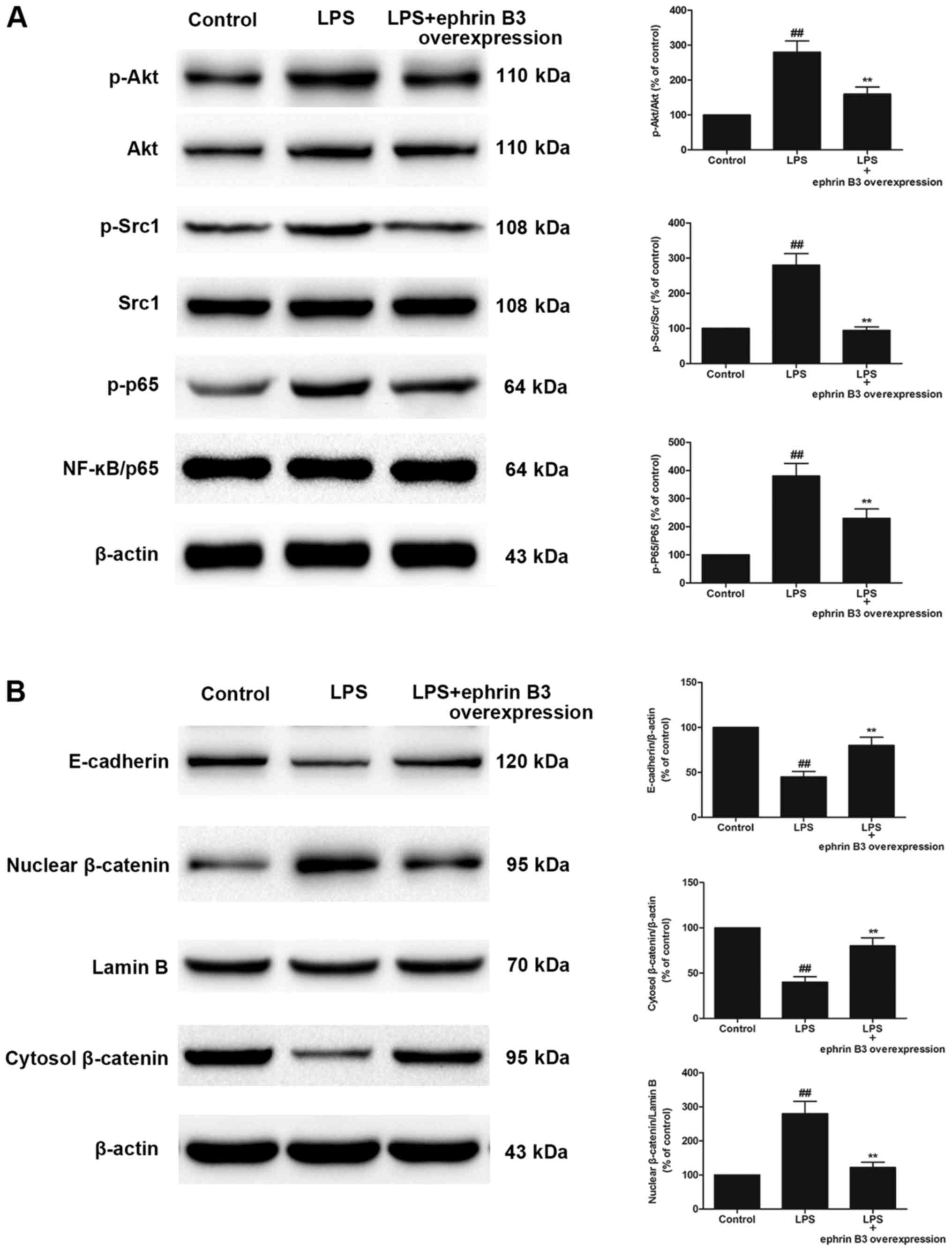|
1
|
Oświęcimska J, Szymlak A, Roczniak W,
Girczys-Połedniok K and Kwiecień J: New insights into the
pathogenesis and treatment of irritable bowel syndrome. Adv Med
Sci. 62:17–30. 2017. View Article : Google Scholar : PubMed/NCBI
|
|
2
|
Mearin F, Ciriza C, Mínguez M, Rey E,
Mascort JJ, Peña E, Cañones P and Júdez J: en nombre de la SEPD; la
semFYC, et al: Clinical practice guidelines: Irritable bowel
syndrome with constipation and functional constipation in adults:
Concept, diagnosis, and healthcare continuity. (Part 1 of 2).
Atencion Primaria. 49:42–55. 2017.(In Spanish). View Article : Google Scholar : PubMed/NCBI
|
|
3
|
Sundin J, Rangel I, Repsilber D and
Brummer RJ: cytokine response after stimulation with key commensal
bacteria differ in Post-Infectious Irritable Bowel Syndrome
(PI-IBS) patients compared to healthy controls. PLoS One.
10:e01348362015. View Article : Google Scholar : PubMed/NCBI
|
|
4
|
Mondelaers SU, Theofanous SA, Florens MV,
Perna E, Aguilera-Lizarraga J, Boeckxstaens GE and Wouters MM:
Effect of genetic background and postinfectious stress on visceral
sensitivity in Citrobacter rodentium-infected mice.
Neurogastroenterol Motil. 28:647–658. 2016. View Article : Google Scholar : PubMed/NCBI
|
|
5
|
Lan C, Sun XN, Zhou XC, Yang B, Huang BL,
Deng TZ, He ZT and Han XY: Preinduced intestinal HSP70 improves
visceral hypersensitivity and abnormal intestinal motility in
PI-IBS mouse model. Asian Pac J Trop Med. 9:302–305. 2016.
View Article : Google Scholar : PubMed/NCBI
|
|
6
|
Polster AV, Friberg P, Neve BL, Törnblom H
and Simren M: Autonomic nervous system function in patients with
Irritable Bowel Syndrome (IBS): Relevance for symptoms?
Gastroenterology. 152 Suppl 1:S7242017. View Article : Google Scholar
|
|
7
|
Menzies V, Jallo N, Kinser P, Robins JL,
An K, Driscoll C, Starkweather A, Bajaj JS and Lyon DE: Shared
symptoms and putative biological mechanisms in chronic liver
disease: Implications for biobehavioral research. Biol Res Nurs.
17:222–229. 2015. View Article : Google Scholar : PubMed/NCBI
|
|
8
|
Hyland NP and Cryan JF: Microbe-host
interactions: Influence of the gut microbiota on the enteric
nervous system. Dev Biol. 417:182–187. 2016. View Article : Google Scholar : PubMed/NCBI
|
|
9
|
Rao M, Rastelli D, Dong L, Chiu S, Setlik
W, Gershon MD and Corfas G: Enteric glia regulate gastrointestinal
motility but are not required for maintenance of the epithelium in
mice. Gastroenterology. 153:1068–1081.e7. 2017. View Article : Google Scholar : PubMed/NCBI
|
|
10
|
Cashman MD, Martin DK, Dhillon DK and Puli
SR: Irritable bowel syndrome: A clinical review. Curr Rheumatol
Rev. 12:13–26. 2016. View Article : Google Scholar : PubMed/NCBI
|
|
11
|
Li S, Fei G, Fang X, Yang X, Sun X, Qian
J, Wood JD and Ke M: Changes in enteric neurons of small intestine
in a rat model of irritable bowel syndrome with diarrhea. J
Neurogastroenterol Motil. 22:310–320. 2016. View Article : Google Scholar : PubMed/NCBI
|
|
12
|
Park I and Lee HS: EphB/ephrinB signaling
in cell adhesion and migration. Mol Cells. 38:14–19. 2015.
View Article : Google Scholar : PubMed/NCBI
|
|
13
|
Barquilla A and Pasquale EB: Eph receptors
and ephrins: Therapeutic opportunities. Annu Rev Pharmacol Toxicol.
55:465–487. 2015. View Article : Google Scholar : PubMed/NCBI
|
|
14
|
Chen X, Cheng ZR, Zhang SJ, Werling D and
Wathes DC: Combining genome wide association studies and
differential gene expression data analyses identifies candidate
genes affecting mastitis caused by two different pathogens in the
dairy cow. Open J Anim Sci. 5:358–393. 2015. View Article : Google Scholar
|
|
15
|
Kang M, Jeong W, Bae H, Lim W, Bazer FW
and Song G: Bifunctional role of ephrin A1-Eph system in
stimulating cell proliferation and protecting cells from cell death
through the attenuation of ER stress and inflammatory responses in
bovine mammary epithelial cells. J Cell Physiol. 233:2560–2571.
2018. View Article : Google Scholar : PubMed/NCBI
|
|
16
|
Han J, Xu Y, Yang D, Yu N, Bai Z and Bian
L: Effect of polysaccharides from acanthopanax senticosus on
intestinal mucosal barrier of escherichia coli lipopolysaccharide
challenged mice. Asian-Australas J Anim Sci. 29:134–141. 2016.
View Article : Google Scholar : PubMed/NCBI
|
|
17
|
Dun MD, Chalkley RJ, Faulkner S, Keene S,
Avery-Kiejda KA, Scott RJ, Falkenby LG, Cairns MJ, Larsen MR,
Bradshaw RA and Hondermarck H: PProteotranscriptomic profiling of
231-BR breast cancer cells: Identification of potential biomarkers
and therapeutic targets for brain metastasis. Mol Cell Proteomics.
14:2316–2330. 2015. View Article : Google Scholar : PubMed/NCBI
|
|
18
|
Hong JY, Shin MH, Douglas IS, Chung KS,
Kim EY, Jung JY, Kang YA, Kim SK, Chang J, Kim YS and Park MS:
Inhibition of EphA2/EphrinA1 signal attenuates
lipopolysaccharide-induced lung injury. Clin Sci (Lond).
130:1993–2003. 2016. View Article : Google Scholar : PubMed/NCBI
|
|
19
|
Dunne PD, Dasgupta S, Blayney JK, McArt
DG, Redmond KL, Weir JA, Bradley CA, Sasazuki T, Shirasawa S, Wang
T, et al: EphA2 expression is a key driver of migration and
invasion and a poor prognostic marker in colorectal cancer. Clin
Cancer Res. 22:230–242. 2015. View Article : Google Scholar : PubMed/NCBI
|
|
20
|
Whitman E and Barber A: NKG2D receptor
activation of NF-κB enhances inflammatory cytokine production in
murine effector CD8(+) T cells. Mol Immunol. 63:268–278. 2015.
View Article : Google Scholar : PubMed/NCBI
|
|
21
|
Cheng CY, Huang WR, Chi PI, Chiu HC and
Liu HJ: Cell entry of bovine ephemeral fever virus requires
activation of Src-JNK-AP1 and PI3K-Akt-NF-κB pathways as well as
Cox-2-mediated PGE2/EP receptor signalling to enhance
clathrin-mediated virus endocytosis. Cell Microbiol. 17:967–987.
2015. View Article : Google Scholar : PubMed/NCBI
|
|
22
|
Daniel AR, Gaviglio AL, Knutson TP,
Ostrander JH, D'Assoro AB, Ravindranathan P, Peng Y, Raj GV, Yee D
and Lange CA: Progesterone receptor-B enhances estrogen
responsiveness of breast cancer cells via scaffolding PELP1- and
estrogen receptor-containing transcription complexes. Oncogene.
34:506–515. 2015. View Article : Google Scholar : PubMed/NCBI
|
|
23
|
Wu Y, Zhang Y, Wang L, Diao Z and Liu W:
The role of autophagy in kidney inflammatory injury via the NF-κB
route induced by LPS. Int J Med Sci. 12:655–667. 2015. View Article : Google Scholar : PubMed/NCBI
|
|
24
|
Huang J, He Y, Mcleod HL, Xie Y, Xiao D,
Hu H, Chen P, Shen L, Zeng S, Yin X, et al: miR-302b inhibits
tumorigenesis by targeting EphA2 via Wnt/β-catenin/EMT signaling
cascade in gastric cancer. BMC Cancer. 17:8862017. View Article : Google Scholar : PubMed/NCBI
|
|
25
|
Ma B and Hottiger MO: Crosstalk between
Wnt/β-Catenin and NF-κB Signaling Pathway during Inflammation.
Front Immunol. 7:3782016. View Article : Google Scholar : PubMed/NCBI
|
|
26
|
Ma B, Fey M and Hottiger MO: WNT/β-catenin
signaling inhibits CBP-mediated RelA acetylation and expression of
proinflammatory NF-κB target genes. J Cell Sci. 128:2430–2436.
2015. View Article : Google Scholar : PubMed/NCBI
|
|
27
|
Voutilainen M, Lindfors PH, Trela E,
Lönnblad D, Shirokova V, Elo T, Rysti E, Schmidt-Ullrich R,
Schneider P and Mikkola ML: Ectodysplasin/NF-κB promotes mammary
cell Fate via Wnt/β-catenin pathway. PLoS Genet. 11:e10056762015.
View Article : Google Scholar : PubMed/NCBI
|
|
28
|
Huang H, Li R, Yuan J, Zhou X, Liu X, Ou
S, Xu T and Chen Y: Up-regulated ephrinB3/EphB3 expression in
intractable temporal lobe epilepsy patients and pilocarpine induced
experimental epilepsy rat model. Brain Res. 1639:1–12. 2016.
View Article : Google Scholar : PubMed/NCBI
|
|
29
|
Dong LD, Gao F, Wang XH, Miao Y, Wang SY,
Wu Y, Li F, Wu J, Cheng XL, Sun XH, et al: GluA2 trafficking is
involved in apoptosis of retinal ganglion cells induced by
activation of EphB/EphrinB reverse signaling in a rat chronic
ocular hypertension model. J Neurosci. 35:5409–5421. 2015.
View Article : Google Scholar : PubMed/NCBI
|
|
30
|
Eusemann TN, Willmroth F, Fiebich B, Biber
K and van Calker D: Adenosine receptors differentially regulate the
expression of regulators of G-protein signalling (RGS) 2, 3 and 4
in astrocyte-like cells. PLoS One. 10:e01349342015. View Article : Google Scholar : PubMed/NCBI
|















